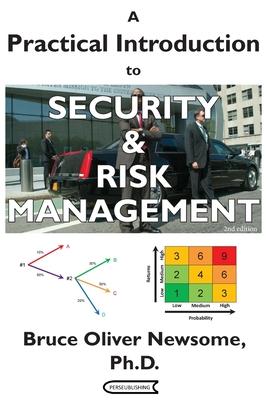A Practical Introduction to Security and Risk Management is the first textbook to combine both security management and risk management. Its concepts and skills can be applied in all domains: business, public administration, public safety, criminology, computing, sports, tourism, agriculture, healthcare, education, intelligence, policing, and international relations.
This second edition adds the latest issues from pandemics, lockdowns, wars, crimes, and cyber risks, NEW "Expert Perspectives," NEW "Think about it" boxes, UPDATED "Official Standards," NEW "End-of-Chapter debates," NEW chapter summaries, questions, and exercises, and a glossary of definitions and abbreviations.
Consultant and professor Bruce Oliver Newsome Ph.D. helps readers to understand, analyze, assess, and manage security and risks.
Organized into 12 brief, accessible chapters, this book shows readers why security and risk management is becoming more important (Chapter 1), how to conceptualize, analyze, and assess security (Chapter 2), capacity (Chapter 3), risk (Chapter 4), hazards, threats, and contributors (Chapter 5), target exposure and vulnerability (Chapter 6), uncertainty and probability (Chapter 7), and events and returns (Chapter 8), how to develop more secure cultures, structures, and processes (Chapter 9), how to establish risk tolerability and sensitivity (Chapter 10), how to strategize and control intolerable risks (Chapter 11), and how to record, communicate, monitor, and audit security and risk management (Chapter 12).
